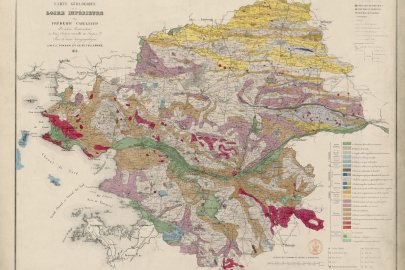
Bolivian and Spanish, Verónica Calvo Valenzuela holds a PhD from Sciences Po Paris. Her dissertation, defended in 2017, examined the role of territory and land in the processes of subjectivation in the Southern Bolivian Andes. After serving as a Temporary Teaching and Research Associate at Université Paris Est Créteil, she joined the Where to Land? workshops in 2019 and embarked on long-term interdisciplinary research on the ecological modes of grounding of human collectives.
Between 2021 and 2024, the workshops were hosted at the Collège des Bernardins within a research chair in environmental humanities. At the end of this period, she began a collaboration with Critical Zone researchers with the aim of developing an anthropological research protocol at the scale of its observatories, notably within HYBAM (Hydrogeochemistry of the Amazon Basin Observatory) in Brazil and Bolivia.
Entitled The Last House: Integrating Anthropology and Earth Sciences to Understand Habitability in the Urban Critical Zone, Verónica Calvo Valenzuela’s research explores the connections between bio-geophysical dynamics and social forms of dwelling. Drawing on Critical Zone sciences—Earth sciences that investigate the thin layer of life located on the planet’s surface—she proposes to enrich this approach through an anthropological reading of collective modes of existence.
Her work is particularly structured around the Where to Land? workshops, which she co-developed at the Collège des Bernardins in dialogue with Bruno Latour. These workshops, which she will also conduct within the framework of the Chair in Nantes, invite local stakeholders (urban planners, architects, developers) to identify their interdependencies—social, affective, economic, and bio-physico-chemical—with the environments they inhabit and transform. By bringing these practices into dialogue with the research carried out at the Nantes Urban Critical Zone Observatory (ONEVU), the project aims to reframe the act of inhabiting within a broader reflection on terrestrial habitability.


